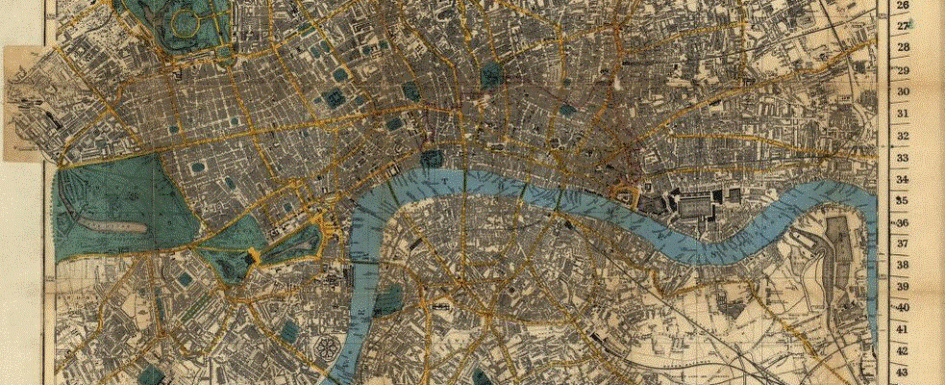Jo Guldi’s work studies historical infrastructure; in her digital humanities work, she builds it
Jo Guldi’s first book, Roads to Power: Britain Invents the Infrastructure State, argues that Britain became an “infrastructure state” during the eighteenth and nineteenth centuries, a period which saw an explosion in construction of roads, along with the accompanying surveying, management, and surveillance of that construction. Guldi’s work often deals with infrastructure, and when she turns her attention away from the history of the British Empire to the digital humanities, infrastructure is at the forefront of her mind there, too. Guldi spoke at the University of Pittsburgh’s Mellon Sawyer Seminar, Information Ecosystems, on Jan. 9 and 10. She also sat down with me for an interview that is part of the podcast series, Information Ecosystems, and will be published soon. As professor of history at Southern Methodist University, Guldi teaches history classes with a few glimpses of the digital humanities, and runs the Guldi Lab, where she employs distant reading techniques to better understand historic texts. While interviewing Guldi and hearing her speak, I was struck by the way the concept of infrastructure — be it the analog infrastructure of roads and canals or the digital infrastructure underlying the Internet — recurs in her work and her thinking. She told me during the podcast interview that she considers it important that her scholarship be available online in open-access form. Many of her articles are open-access, as is her second book, The History Manifesto, co-authored with David Armitage. Like the miles and miles of roads that connected Britain in the nineteenth century, the Internet has the power to connect people and Read More

